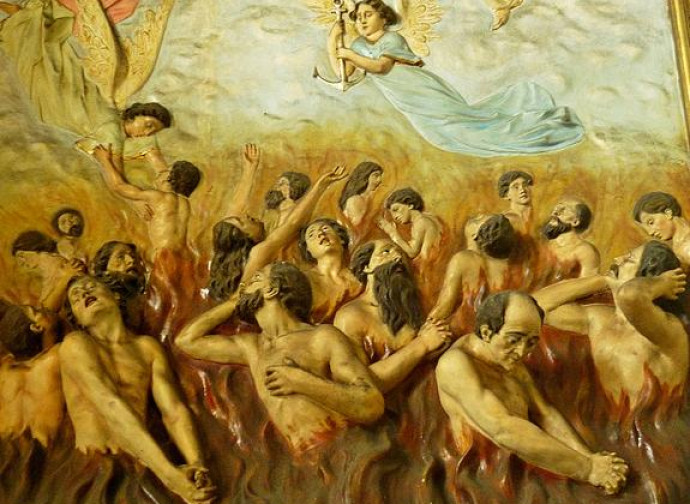The joy of the soul in coming out of Purgatory
The soul, after so many pains endured with love, being out of the body and out of the world, immensely appreciates God, Supreme Good, supreme holiness, supreme goodness, and is welcomed by God with infinite love, in an embrace of unspeakable joy. The soul conquers the heavenly Homeland, Paradise, for all eternity.
No human mind can imagine or describe the exultation of that blessed hour, in which the soul, purified by the atonement, flies from it to Heaven, pure as when God created it, and happy to feel forever united to its Supreme well, in an ocean of happiness and peace.
No earthly comparison is sufficient to give us an idea.
The exile who returns to his homeland after long years of absence, who sees his native land again, and, embraces, full of joy, the dearest people in regaining freedom and peace; the sick person who, completely restored, revises the rooms of his home, and resumes the serenity of active life, cannot even give us a pale idea of the glorious and festive return of the soul to God, and of the eternal joy of life that does not can get lost more. Let us try to get a pale idea of it, to push ourselves to live holily, to welcome the pains of life in perfect union with the Divine Will and, to increase our merits, taking advantage of all the riches that Jesus gives us in the Church.
The same intensity of the pains of Purgatory can make us palely suppose the intensity of the joy of a soul who, freed, enters Paradise, because every earthly joy is measured by pain. Nor can you feel the satisfaction of a glass of cold water, if you are not thirsty, the satiety of tasty food, if you are not hungry; the joy of a peaceful rest, if you are not tired.
The soul, therefore, who is in perpetual and tormenting expectation of happiness, with a love for God that grows and intensifies to the extent that it is purified, at the end of the purification, at the loving invitation of God, it rushes in He, and it is all a song of gratitude, for the same pains that he suffered, more than he does not have gratitude for the sick healed, for the pains inflicted by the surgeon.
